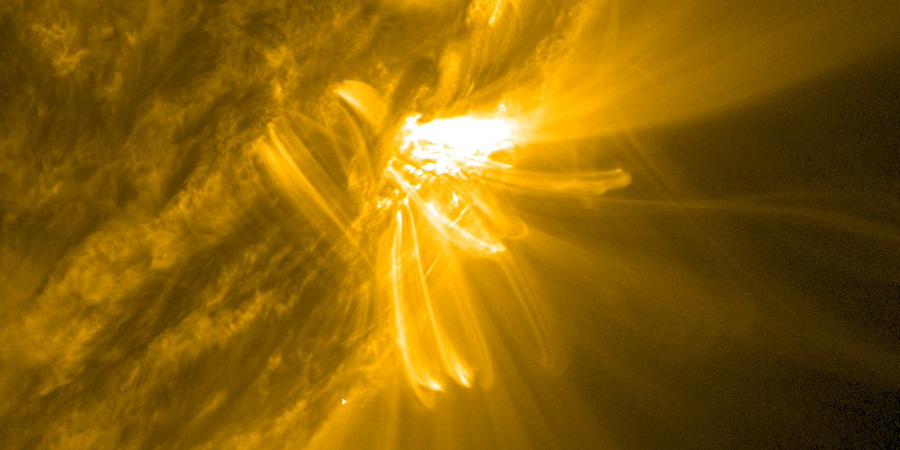S1 storm, CME arrival, M-flares
Saturday, 27 August 2022 17:22 UTC

Solar activity is moderate due to numerous M-class solar flares from departing sunspot region 3088. This region is now close the west limb and any coronal mass ejections produced by this region are unlikely to affect Earth.
We are also in a minor S1 solar radiation storm at the moment due to an M4.8 solar flare from this region earlier today. The solar protons arrived at Earth but the resulting coronal mass ejection is not aimed at our planet. S1 solar radiation storms can cause troublesome HF radio propagation at arctic latitudes. Last but not least we also saw the arrival of a minor coronal mass ejection which could cause enhanced auroral conditions at high latitude locations. Also something to keep an eye on if you're lucky enough to be at such a location. The solar wind speed is not high at 400km/s but the north-south component of the interplanetary magnetic field (Bz) did flip southward which will fuel auroral activity.
Thank you for reading this article! Did you have any trouble with the technical terms used in this article? Our help section is the place to be where you can find in-depth articles, a FAQ and a list with common abbreviations. Still puzzled? Just post on our forum where we will help you the best we can!
Latest news
Latest forum messages
Support SpaceWeatherLive.com!
A lot of people come to SpaceWeatherLive to follow the Solar activity or if there is a chance to see the aurora, but with more traffic comes higher costs to keep the servers online. If you like SpaceWeatherLive and want to support the project you can choose a subscription for an ad-free site or consider a donation. With your help we can keep SpaceWeatherLive online!
Space weather facts
| Last X-flare | 2025/12/08 | X1.1 |
| Last M-flare | 2025/12/31 | M7.11 |
| Last geomagnetic storm | 2026/01/02 | Kp5 (G1) |
| Spotless days | |
|---|---|
| Last spotless day | 2022/06/08 |
| Monthly mean Sunspot Number | |
|---|---|
| December 2025 | 124 +32.2 |
| January 2026 | 126.7 +2.7 |
| Last 30 days | 109.3 +2.1 |





